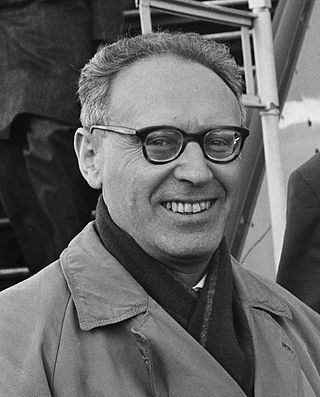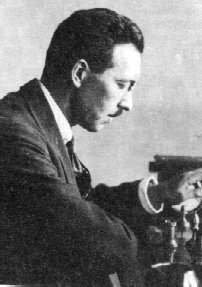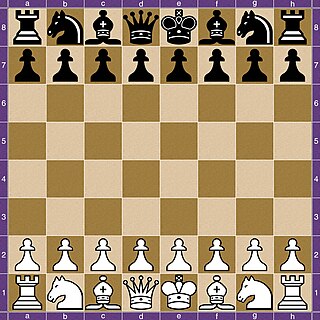
Anatoly Yevgenyevich Karpov is a Russian and former Soviet chess grandmaster, former World Chess Champion, and politician. He was the 12th World Chess Champion from 1975 to 1985, a three-time FIDE World Champion, twice World Chess champion as a member of the USSR team, and a six-time winner of Chess Olympiads as a member of the USSR team. The International Association of Chess Press awarded him nine Chess Oscars.

Tigran Vartanovich Petrosian was a Soviet-Armenian chess grandmaster and World Chess Champion from 1963 to 1969. He was nicknamed "Iron Tigran" due to his almost-impenetrable defensive playing style, which emphasized safety above all else. Petrosian is often credited with popularizing chess in Armenia.

Mikhail Nekhemyevich Tal was a Soviet-Latvian chess player and the eighth World Chess Champion. He is considered a creative genius and is widely regarded as one of the most influential players in chess history. Tal played in an attacking and daring combinatorial style. His play was known above all for improvisation and unpredictability. Vladislav Zubok said of him, "Every game for him was as inimitable and invaluable as a poem".

David Ionovich Bronstein was a Soviet chess player. Awarded the title of International Grandmaster by FIDE in 1950, he narrowly missed becoming World Chess Champion in 1951. Bronstein was one of the world's strongest players from the mid-1940s into the mid-1970s, and was described by his peers as a creative genius and master of tactics. He was also a renowned chess writer; his book Zurich International Chess Tournament 1953 is widely considered one of the greatest chess books ever written.

Mikhail Moiseyevich Botvinnik was a Soviet and Russian chess grandmaster who held five world titles in three different reigns. The sixth World Chess Champion, he also worked as an electrical engineer and computer scientist and was a pioneer in computer chess. He also had a mathematics degree (honorary).

Jørgen Bent Larsen was a Danish chess grandmaster and author. Known for his imaginative and unorthodox style of play, he was the second-strongest non-Soviet player, behind only Bobby Fischer, for much of the 1960s and 1970s. He is considered to be the strongest player born in Denmark and the strongest from Scandinavia until the emergence of Magnus Carlsen.

Alexander Alexandrovich Kotov was a Soviet chess grandmaster and author. He was a Soviet chess champion, a two-time world title Candidate, and a prolific writer on the subject of chess. Kotov served in high posts in the Soviet Chess Federation, and wrote most of his books during the Cold War. The importance and breadth of Kotov's work rank him among the all-time greats in this field.

Samuel Herman Reshevsky was a Polish chess prodigy and later a leading American chess grandmaster. He was a contender for the World Chess Championship from the mid-1930s to the mid-1960s: he tied for third place in the 1948 World Chess Championship tournament, and tied for second in the 1953 Candidates tournament. He was an eight-time winner of the US Chess Championship, tying him with Bobby Fischer for the all-time record.
This is a timeline of chess.
A game of chess can end in a draw by agreement. A player may offer a draw at any stage of a game; if the opponent accepts, the game is a draw. In some competitions, draws by agreement are restricted; for example draw offers may be subject to the discretion of the arbiter, or may be forbidden before move 30 or 40, or even forbidden altogether. The majority of draws in chess are by agreement.

Andrew Eden Soltis is an American chess grandmaster, author and columnist. He was inducted into the United States Chess Hall of Fame in September 2011.
Several methods have been suggested for comparing the greatest chess players in history. There is agreement on a statistical system to rate the strengths of current players, called the Elo system, but disagreement about methods used to compare players from different generations who never competed against each other.

Robert James Fischer was an American chess grandmaster and the eleventh World Chess Champion. A chess prodigy, he won his first of a record eight US Championships at the age of 14. In 1964, he won with an 11–0 score, the only perfect score in the history of the tournament. Qualifying for the 1972 World Championship, Fischer swept matches with Mark Taimanov and Bent Larsen by 6–0 scores. After winning another qualifying match against Tigran Petrosian, Fischer won the title match against Boris Spassky of the USSR, in Reykjavík, Iceland. Publicized as a Cold War confrontation between the US and USSR, the match attracted more worldwide interest than any chess championship before or since.

András Adorján was a Hungarian Chess Grandmaster (1973) and author. He adopted his mother's maiden name, Adorján, in 1968.

Robert Graham Wade, known as Bob Wade, was a New Zealand and English chess player, writer, arbiter, coach, and promoter. He was New Zealand champion three times, British champion twice, and played in seven Chess Olympiads and one Interzonal tournament. Wade held the titles of International Master and International Arbiter.

Grigory Yakovlevich Levenfish was a Soviet chess player who scored his peak competitive results in the 1920s and 1930s. He was twice Soviet champion, in 1934 and 1937. In 1937 he drew a match against future world champion Mikhail Botvinnik. In 1950 Levenfish was among the first recipients of the title of Grandmaster, awarded by FIDE that year for the first time.
My Great Predecessors is a series of chess books written by former World Champion Garry Kasparov et al. The five volumes in the My Great Predecessors series are about the players who preceded Kasparov in being official World Champions. The series of books continued with the Modern Chess volumes that covers developments in the 1970s and Kasparov's games with Anatoly Karpov. The series is being extended with three volumes of Garry Kasparov on Garry Kasparov, covering his other games. The books contain historical details, but for the most part the books are made up of annotated games.

The game of chess is commonly divided into three phases: the opening, middlegame, and endgame. There is a large body of theory regarding how the game should be played in each of these phases, especially the opening and endgame. Those who write about chess theory, who are often also eminent players, are referred to as "theorists" or "theoreticians".
Edward Freeborough was the co-author, with Charles Ranken, of Chess Openings Ancient and Modern (1889), one of the first important opening treatises in the English language and a precursor of Modern Chess Openings. He was a member of the editorial staff of the British Chess Magazine from 1883 until his death in 1896. He also wrote the books Chess Endings and Select Chess End-Games from Actual Play, and edited the book Analysis of the Chess Ending, King and Queen Against King and Rook by "Euclid" (1895).

Viktor Lvovich Korchnoi was a Soviet and Swiss chess grandmaster (GM) and chess writer. He is considered one of the strongest players never to have become World Chess Champion.
















